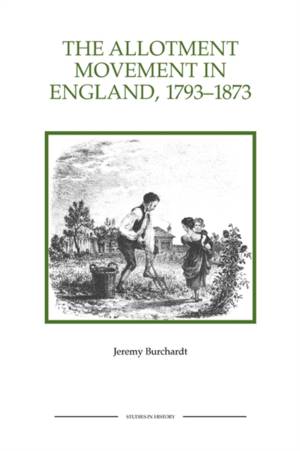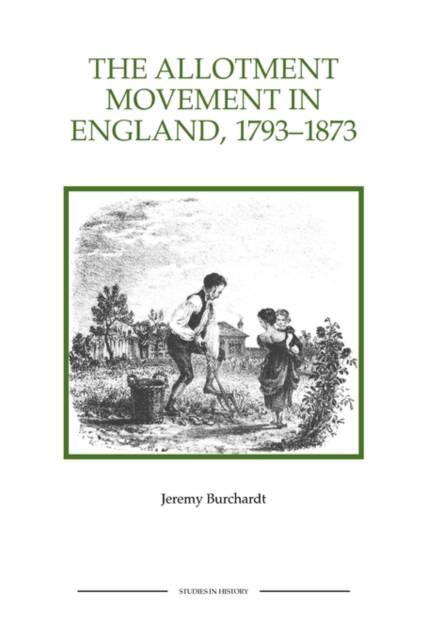
- Retrait gratuit dans votre magasin Club
- 7.000.000 titres dans notre catalogue
- Payer en toute sécurité
- Toujours un magasin près de chez vous
- Retrait gratuit dans votre magasin Club
- 7.000.0000 titres dans notre catalogue
- Payer en toute sécurité
- Toujours un magasin près de chez vous
Description
The first systematic analysis of the early nineteenth-century allotment movement. The living standards of the rural poor suffered a severe decline in the first half of the nineteenth century as a result of high population growth, changing agricultural practices, enclosure and the decline of rural industries. Allotment provision was the most important counterweight to the pressures. This book offers the first systematic analysis of the early nineteenth-century allotment movement, providing new data on its chronology and on the number, geographical distribution, size, rents, cultivation yields and effect on living standards of allotments. It thus shows how the movement brought the culture of the rural labouring poor more closely into line with the mainstream values of respectable mid-Victorian England, and casts new light on central aspects of early and mid-nineteenth-century social and economic history, agriculture and rural society. JEREMY BURCHARDT is lecturer in Rural History, University of Reading.
Spécifications
Parties prenantes
- Auteur(s) :
- Editeur:
Contenu
- Nombre de pages :
- 300
- Langue:
- Anglais
- Collection :
- Tome:
- n° 30
Caractéristiques
- EAN:
- 9781843836438
- Date de parution :
- 15-09-11
- Format:
- Livre broché
- Format numérique:
- Trade paperback (VS)
- Dimensions :
- 156 mm x 234 mm
- Poids :
- 421 g

Les avis
Nous publions uniquement les avis qui respectent les conditions requises. Consultez nos conditions pour les avis.






